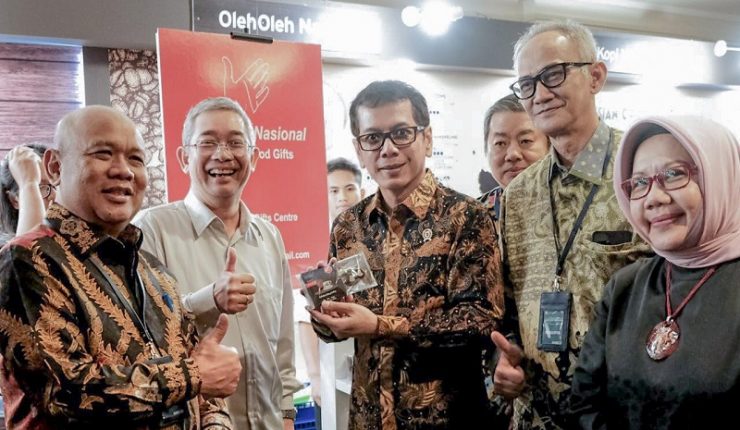THE Ministry of Tourism & Creative Economy continues to encourage the emergence of new regulations that can support the creative economy industry ecosystem, thus making local creative economy products able to compete or even excel with foreign products in their own country.
According to the Minister of Tourism and Creative Economy/Head of Tourism and Creative Economy Agency Wishnutama Kusubandio said, the real challenge in the development of the country’s creative economy today is the ecosystem itself. Before talking about products, we must be able to create a conducive ecosystem that can certainly support local players.
“The goal is that local products can become leaders in our own markets. That there are many aspects that we must protect to strengthen and even make Indonesian products compete in today’s era,” Wishnutama said.
He gave an example of e-commerce services in Indonesia, currently 70 percent of them are filled with creative economic products from abroad. While local creative economy products only fill no more than 10 percent. Likewise in the offline market such as in various shopping centers that are also filled with products from outside.
Whereas in the development of the creative economy in the current digital era, after production, space for distribution, marketing and payment is very important. However, in reality it is precisely these important spaces are not in the position of local players.
To support the creation of this ecosystem, it is necessary to have regulations that support creative economic products which are actually very closely related to Small & Medium Enterprises. So that it can truly be the future of supporting the Indonesian economy.
“In the future we must make rules and regulations that protect domestic creative economic products. As a matter of taxes and legal entities and a fairer competition atmosphere,” he said.
In addition to regulation, the government, said Wishnutama, will also seek the transfer of knowledge and skills for creative actors in Indonesia. That at this time many creative economy industry players are utilizing big data analysis and Artificial Intelligence so that they can predict market tastes and wishes, carry out production precisely in terms of quantity and time so that their products can be marketed precisely.
“This is a very important thing for us to continue to build so that our industry can survive also in competition,” Wishnutama said.
In addition, equally important is the protection of rights and monetization of Intellectual Property Rights and competitive fiscal and non-fiscal incentives for priority creative economy sectors.
Menparekraf Wishnutama also said that the Ministry of Tourism and creative economy will develop superior seeds of digital economy entrepreneurs, especially millennial in creating creative work. The ongoing effort is to encourage the presence of creative hubs which are at the initial stages of being presented at super priority destinations and will be replicated to other regions that also have creative economic potential.
“In the future there are many things that ministries / institutions we can harmonize so that we can implement various goals that we hope can improve creative economic products that strongly support MSMEs and trade in Indonesia,” Wishnutama said.
He added, we must seize this ecosystem, the time is now and cannot be postponed. When understanding is outside of us, that means we are lagging behind. It is time to continue to study this regulation and give understanding to the creative industry and Small & Medium Enterprises towards the future of the digital economy and going offline,
On the sidelines of the meeting, Wishnutama also signed an MoU between Kemenparekraf and the Ministry of Trade, the Ministry of Cooperatives and Small and Medium Enterprises and the Indonesian Hotel and Restaurant Association (PHRI).
The scope of the memorandum of understanding includes the use of domestic products from micro, small and medium enterprises and cooperatives in the tourism sector based on sustainable local wisdom and increasing the added value and competitiveness of domestic products and from micro, small and medium businesses and cooperatives in the tourism sector. [traveltext.id]
















